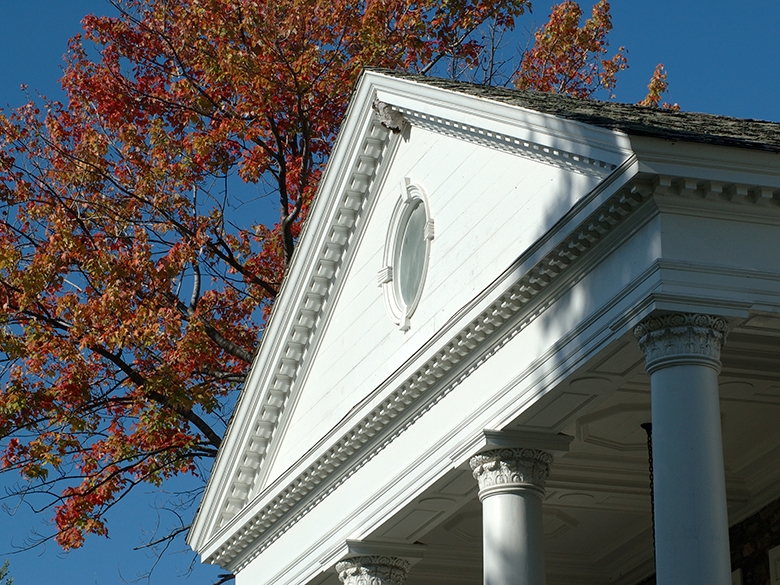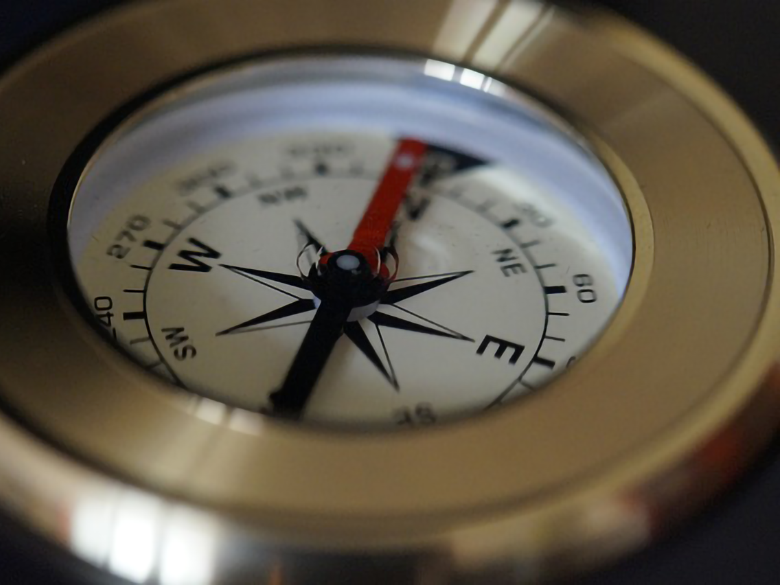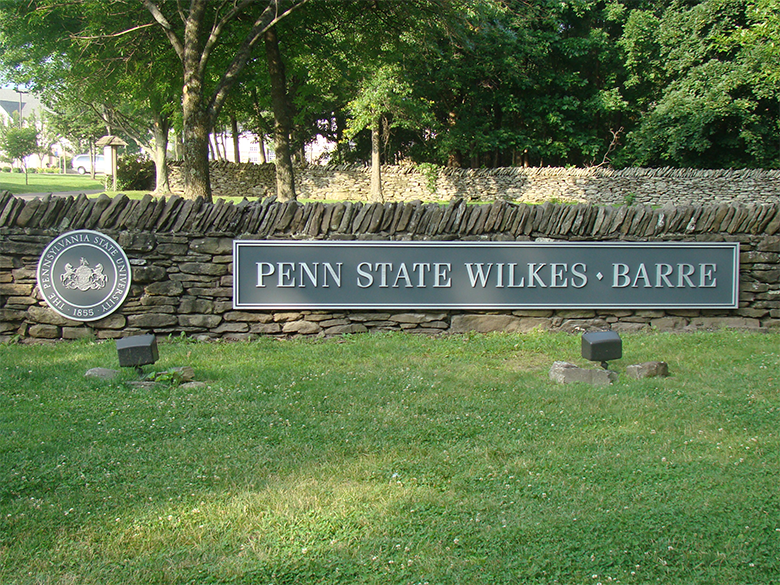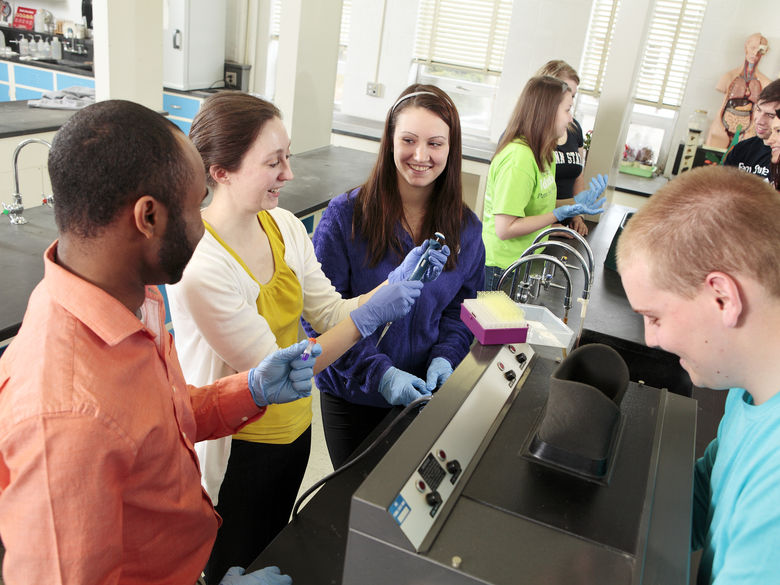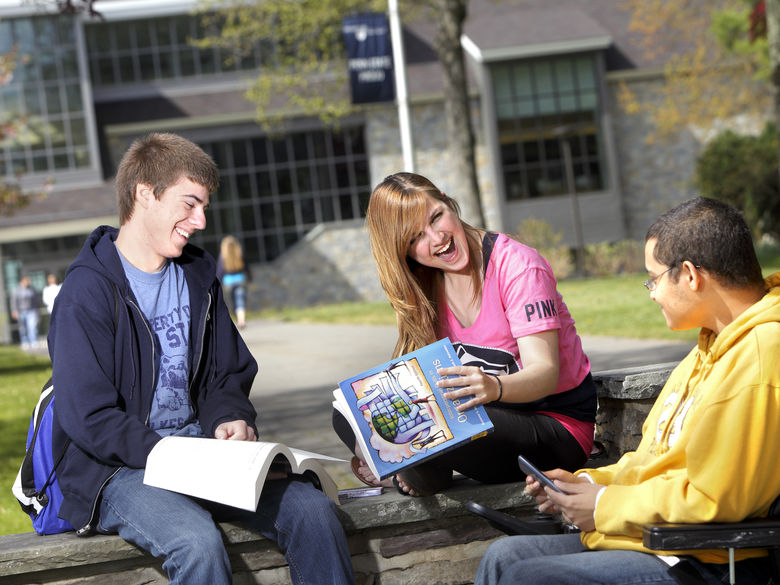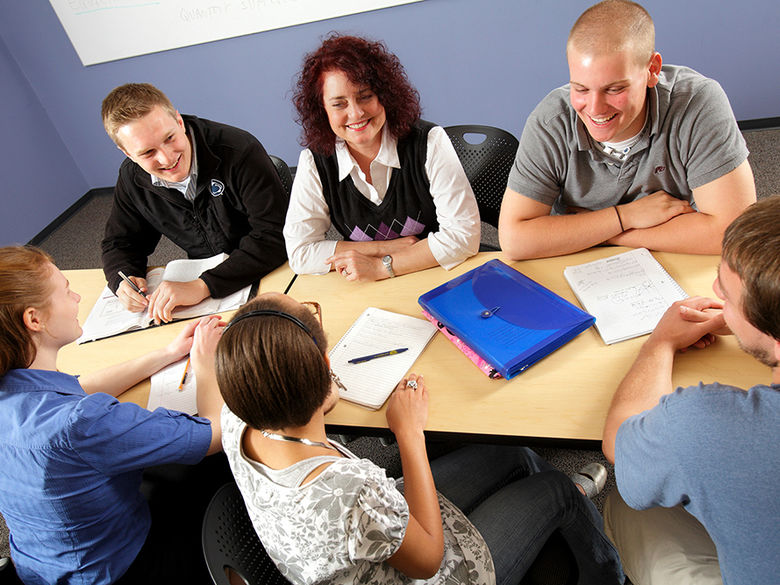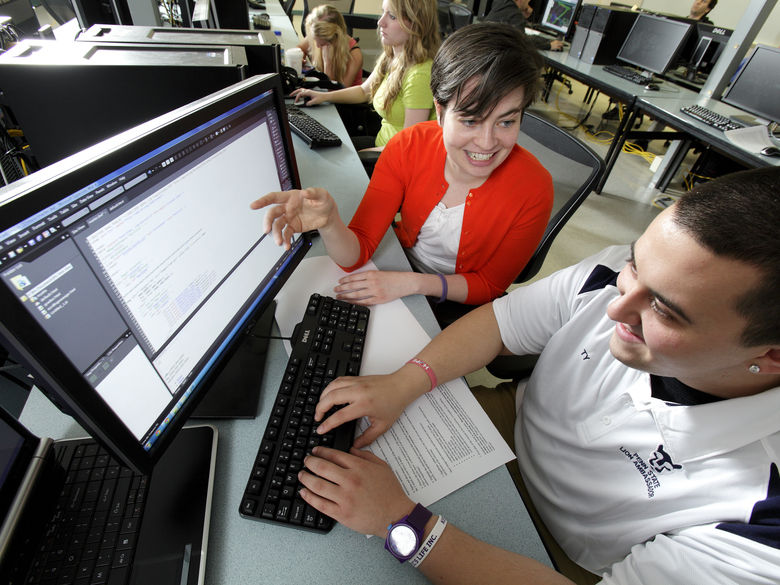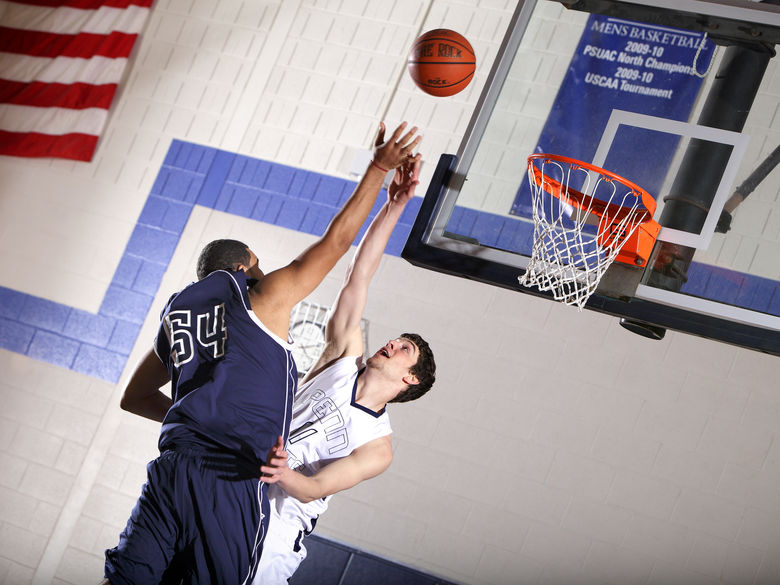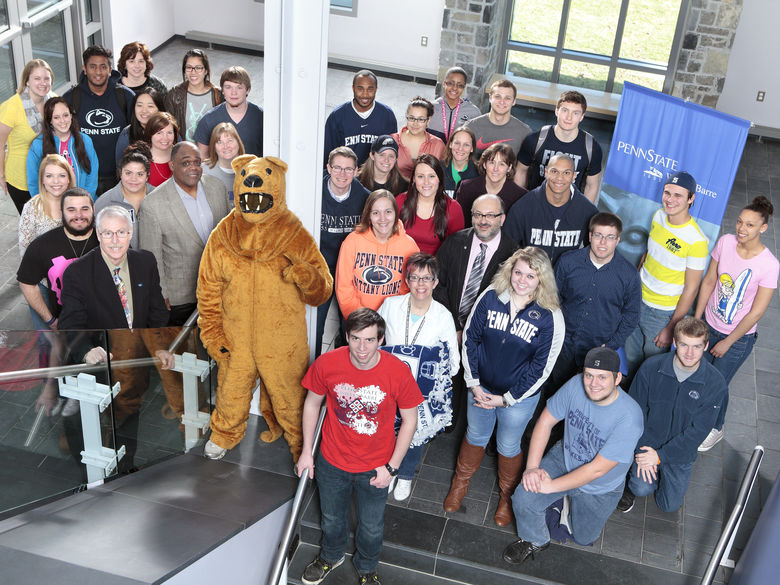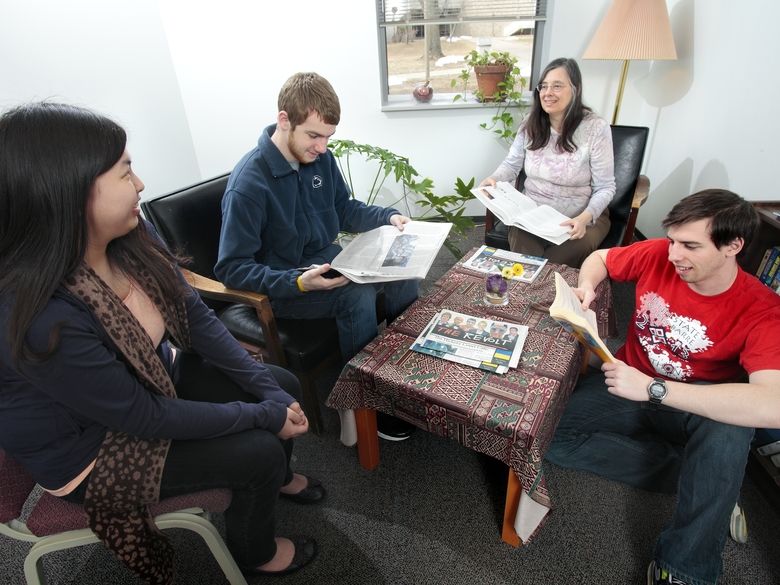At Penn State Wilkes-Barre, students can access the resources of a major university while interacting in small, friendly classes with faculty they can get to know. We offer the first two years of most of the 275+ baccalaureate degree programs currently offered by Penn State, plus several associate and bachelor’s degree programs students can complete on this campus.
Here we can help students sort through their interests, explore their options, and put them on the path to academic success. Convenient class schedules, financial aid, career counseling, small classes with outstanding faculty, and state-of-the-art facilities all combine to make a Penn State Wilkes-Barre education the best it can be.
We are… Penn State!
